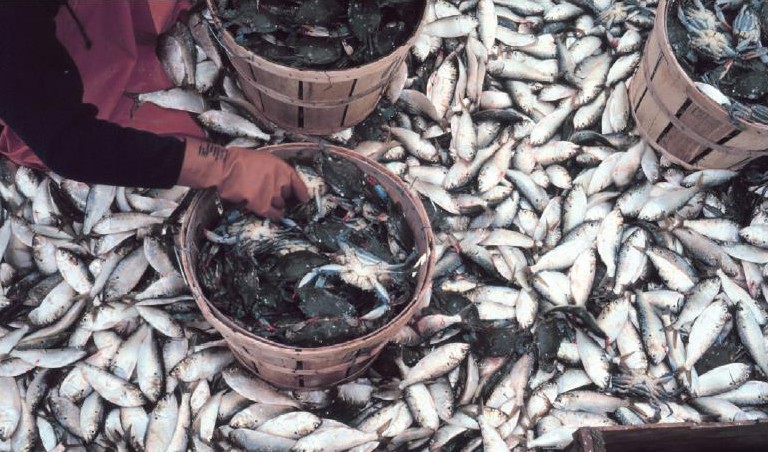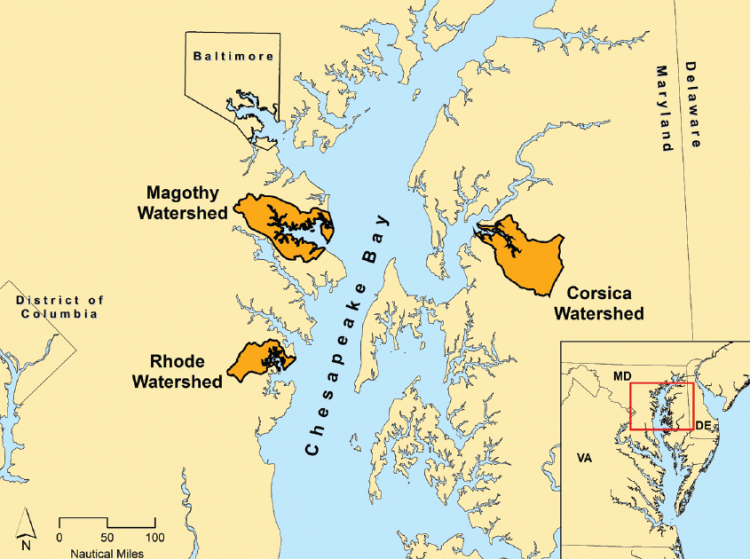
The harvest of seafood from the Chesapeake Bay, which contributes billions of dollars to local and state economies, is just one of the key aquatic ecosystem services threatened by land-based stressors. Credit: NOAA.
NCCOS recently completed an assessment of three watersheds in the Chesapeake Bay region (Corsica, Magothy, and Rhode Rivers), exploring the linkages between dominant land-use type (agriculture, residential, and mixed-use, respectively) and aquatic ecosystem health. Habitat health was determined based on factors of water quality including dissolved oxygen, nitrogen, and phosphorous concentrations, and aquatic organism health indicators of fish and shellfish growth, disease prevalence, abundance, and diversity.
Understanding how these observations relate to local human activities and subsequently indicate trade-offs between land development and aquatic ecosystem health is necessary for balancing the needs of the growing population and protecting the Chesapeake Bay's valuable ecosystem services, from commercial and recreational fisheries, boating, and ecotourism.

The boundaries of the Magothy, Corsica, and Rhode watersheds selected for the assessment. Credit: NOAA.
The published results supported the linkage of land development to the condition of coastal habitats and the health of estuarine organisms. The study showed the effectiveness of using living marine resources as bioindicators of watershed health and highlighted tradeoffs that exist between types of land use and natural resource health.
While the ecosystems of the watersheds were determined to be resilient in maintaining their health in the face of environmental stress, the results caution against pushing the ecosystems beyond their threshold and suggest that future management plans use smart development strategies that account for those thresholds and balance environmental protection with economic growth.
For more information, please contact AK.Leight@noaa.gov or Bob.Wood@noaa.gov.
 Official websites use .gov
A .gov website belongs to an official government organization in the United States.
Official websites use .gov
A .gov website belongs to an official government organization in the United States. Secure .gov websites use HTTPS
A lock or https:// means you’ve safely connected to the .gov website. Share sensitive information only on official, secure websites.
Secure .gov websites use HTTPS
A lock or https:// means you’ve safely connected to the .gov website. Share sensitive information only on official, secure websites.